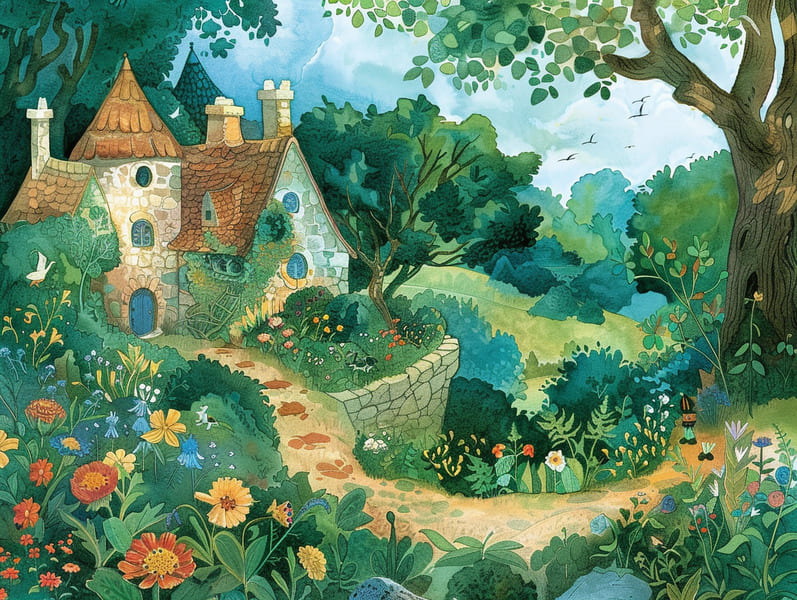Understanding the Wonder of Nighttime Tales: Establishing Prized Moments with Your Loved Ones
Understanding the Wonder of Nighttime Tales: Establishing Prized Moments with Your Loved Ones
Blog Article

Nightfall is a precious time for parents and children. It’s a occasion to calm down, huddle together, and delight in the beauty of bedtime narratives.
For years, nightly tales for children have been a treasured habit, offering more than just a way to drift off. They provide an means for affection, discovery, and sparking fantasy.
How Bedtime Stories Benefit Kids
Children's bedtime stories serve more than a way to conclude the day. They play a important role in a child’s progress and in building the caregiver-child rapport. Here’s why they are significant:
1. Shared Moments: Sharing bedtime stories encourages a special time of affection between moms and dads with their little ones. It’s a moment of attachment that helps children feel important and content.
2. Speech and Language Skills: Listening to stories helps children develop their communication skills. They understand new expressions, understand syntax, and enhance their listening and comprehension abilities.
3. Imaginative Skills: Kids' stories lead them to fantastic worlds, promoting creativity. They see characters, settings, and adventures, which powers their creative thinking.
4. Emotional Growth: Kids' tales often include characters facing obstacles and sentiments. These stories help kids comprehend and deal with their own feelings, fostering feeling recognition.
5. Intellectual Growth: Paying attention to a narrative helps children develop attention span, memory, and analytical skills. They enhance to follow narratives, remember components, and deduce results.
Making Bedtime Stories a Daily Practice
Starting a bedtime custom that involves reading narratives is effortless and gratifying. Here’s how to turn it into a prized part of your evening custom:
1. Pick a Cozy Area: Find a relaxing place where you and your child can relax without disturbances. A relaxing bed or a relaxing reading nook works perfectly.
2. Pick the Right Time: Pick a routine time each night for bedtime reading. Regularity helps children be prepared and makes the ritual easier to maintain.
3. Pick Age-Suitable Stories: Opt for tales that fit your child’s developmental stage. Toddlers might enjoy visual books with uncomplicated narratives, while more mature kids may like chapter books with more involved stories.
4. Animate the Tale: Make the tale feel vivid by trying different character voices, adding special sounds, and getting your child to take part. Ask questions about the story to involve them.
5. Create a Soothing Environment: Reduce the lights, use quiet tones, and create a relaxing environment to help your child wind down.
Finding Excellent Bedtime Stories
There are varied resources where you can find great bedtime stories for children. Here are some places to try:
1. Books for Children: Check out your neighborhood library or bookstore to find a large selection of bedtime stories for kids. Checking out the choices together can be a wonderful activity that also helps children to choose stories that they like.
2. Internet Resources: There are many sites that offer free bedtime stories. Sites like Storynory provide a variety of short stories website for kids that you can print out. These platforms are great for finding new and diverse stories without payment.
3. Audio Books and Story Apps: For nights when you’re too exhausted to read, explore audiobooks or storytelling apps. These can provide a quiet narration to read your child a story, ensuring they still get their bedtime story fix. Apps often offer interactive parts that can involve them further.
4. Personal Stories: Craft your own stories matching your child’s interests. Personalized stories can be incredibly engaging and meaningful. You can bring your child in the creation process, making them a part of the adventure.
Shorter Story Benefits
Short bedtime stories are especially helpful for bedtime. They provide all the advantages of longer stories but are more to the point, making them perfect for getting ready for bed before sleep. Here’s why short stories are a excellent choice:
1. Effortless to Follow: Brief tales are easy and effortless for children to follow, even after a long day. They can promptly grasp the story and enjoy the story without getting lost.
2. Quick Engagement: These stories rapidly engage children, grabbing their interest and fascination. This makes them perfect for keeping bedtime traditions efficient yet enjoyable.
3. Many Choices: Concise narratives create for variety in your bedtime stories. You can pick a different story each night, keeping the habit engaging and exciting for your child.
4. Efficient Use of Time: For busy parents, to-the-point tales are a easy way to guarantee children still get their nightly dose of storytelling. They fit well into a busy schedule while still offering the full good aspects of a bedtime story.
The Comfort of "Read Me a Story"
The simple phrase, “Read me a book,” can bring a world of magic for children. Answering to this request not only satisfies a child’s requirement for attention and engagement but also fosters lasting moments. Here’s why it’s enchanting:
1. Tie: Reading aloud to your child fosters a deep emotional connection. It’s a time for proximity, sharing, and bonding.
2. Custom: Creating a bedtime story routine creates a important tradition that children enjoy every night. It’s a practice that can be continued through generations.
3. Joint Growth: As you share stories, you’ll witness your child’s evolution and maturation. Their queries, reactions, and understanding of the stories advance, offering insights into their developing minds.
4. Secure Place: Bedtime stories provide a safe space for children to discover emotions, face fears, and find comfort in the familiar presence of a parent.
The Last Word
Kids’ bedtime stories are a effective tool for supporting a child’s advancement and establishing unforgettable experiences of bonding.